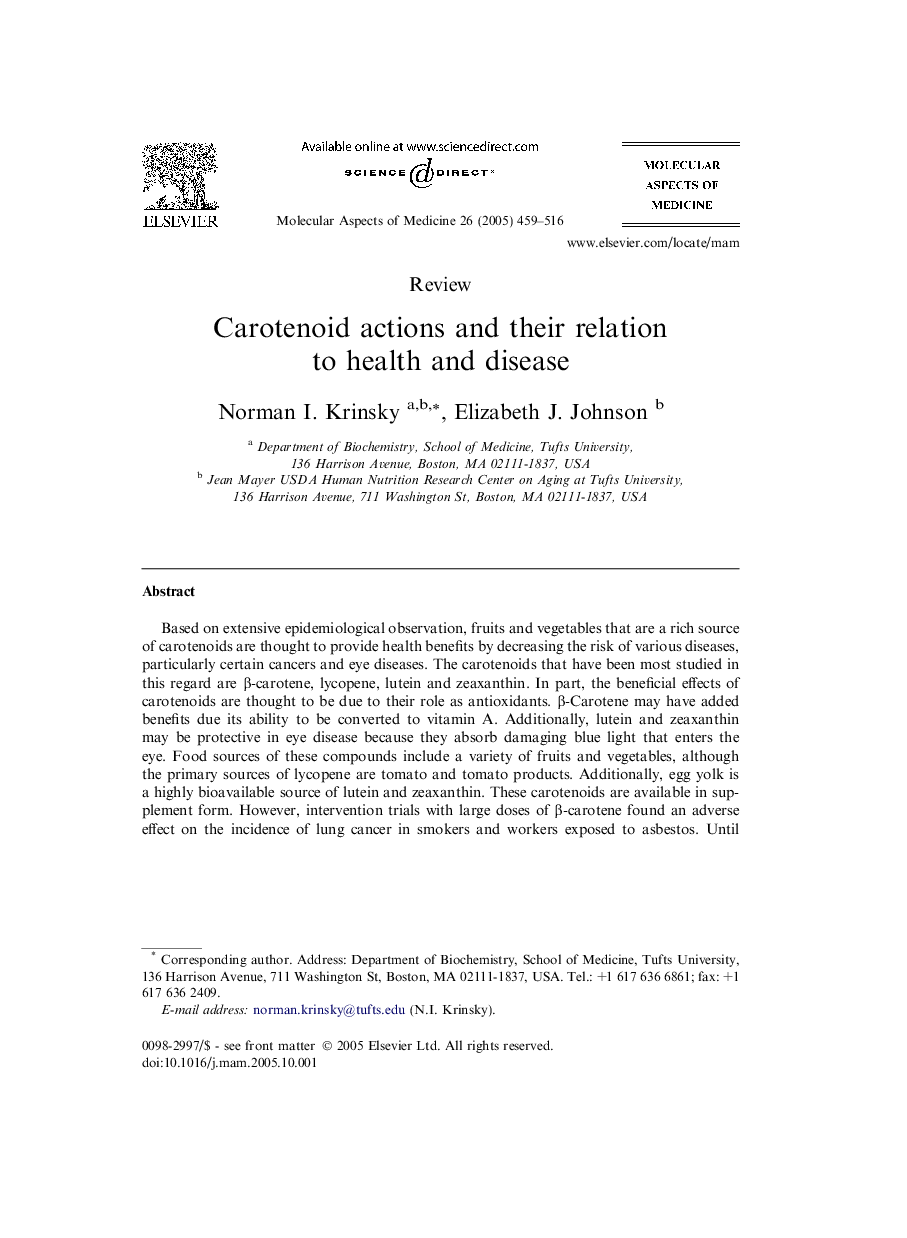| Article ID | Journal | Published Year | Pages | File Type |
|---|---|---|---|---|
| 9893143 | Molecular Aspects of Medicine | 2005 | 58 Pages |
Abstract
Based on extensive epidemiological observation, fruits and vegetables that are a rich source of carotenoids are thought to provide health benefits by decreasing the risk of various diseases, particularly certain cancers and eye diseases. The carotenoids that have been most studied in this regard are β-carotene, lycopene, lutein and zeaxanthin. In part, the beneficial effects of carotenoids are thought to be due to their role as antioxidants. β-Carotene may have added benefits due its ability to be converted to vitamin A. Additionally, lutein and zeaxanthin may be protective in eye disease because they absorb damaging blue light that enters the eye. Food sources of these compounds include a variety of fruits and vegetables, although the primary sources of lycopene are tomato and tomato products. Additionally, egg yolk is a highly bioavailable source of lutein and zeaxanthin. These carotenoids are available in supplement form. However, intervention trials with large doses of β-carotene found an adverse effect on the incidence of lung cancer in smokers and workers exposed to asbestos. Until the efficacy and safety of taking supplements containing these nutrients can be determined, current dietary recommendations of diets high in fruits and vegetables are advised.
Related Topics
Life Sciences
Biochemistry, Genetics and Molecular Biology
Biochemistry
Authors
Norman I. Krinsky, Elizabeth J. Johnson,
